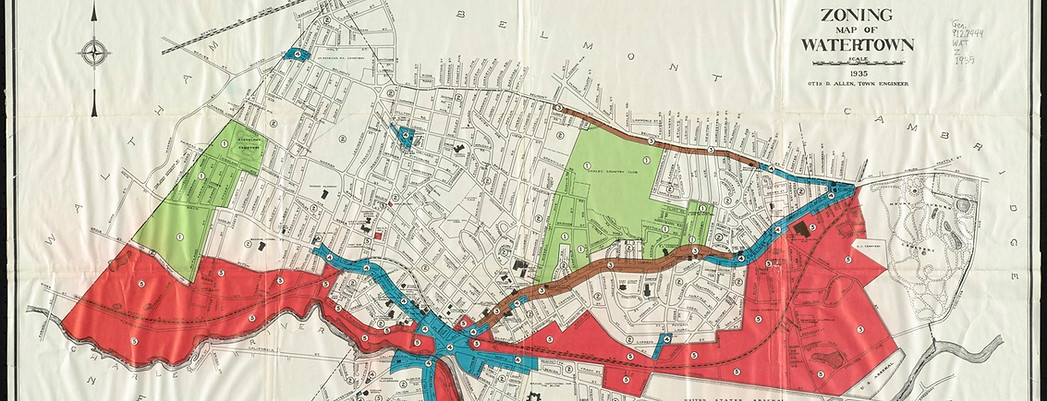
Affordable Housing Overlay (AHO)
What is an AHO?
The goal of an Affordable Housing Overlay (AHO) is to expand opportunities to build new affordable housing across a city or town.
As you probably know, zoning divides land into distinct areas, or zones, each of which has a set of regulations for new development. A single zone might cover large swaths of a city or just a few square blocks. Zoning regulations dictate the height, density, setback, parking, design, or use requirements for buildings in each zone.
Zoning regulations do not, however, govern building standards and safety rules—those are set at the state level. Zoning dictates how far back your front steps need to be from the sidewalk, not whether a builder can use dangerous materials or designs.
An overlay is simply a special zoning district that’s placed on top of the existing zones, amending them in some way. A historic or cultural district are examples of zoning overlays.
An Affordable Housing Overlay offers zoning adjustments that make it easier, faster, and cheaper to build income-restricted affordable housing. These adjustments typically focus on height, density, and parking—three areas where restrictive zoning makes housing unaffordable.
Why Watertown Needs an AHO Now
Every year, rising costs force working families to leave Watertown while middle-class and even affluent neighbors can’t afford to purchase a home, expand their families, or downsize appropriately. Those looking to remain here after retirement, or age with dignity in the city they love, can’t find affordable homes that work for them. Younger residents who were born and raised here have no place to rent or own as they launch into adulthood. It is a generational crisis.
Watertown’s rules for what type of housing can or cannot be built on a piece of land—our zoning ordinance—are a major contributor to this affordability crisis. In most neighborhoods, the rules are so restrictive that developers can only build McMansions, condo conversions, or luxury townhomes, while nonprofit and affordable housing developers are boxed out by red tape, slow processes, and a lack of predictability.
It is, in effect, illegal to build the most affordable types of homes across most of Watertown. Current zoning only allows affordable multifamily housing along certain high-traffic corridors and in Watertown Square. This forces affordable housing builders—often nonprofits working with federal and state grants—to compete with national lab or mixed-use developers for the few plots of land available. Look around, you'll see the outcome: many labs, not much affordable housing.

An Affordable Housing Overlay can expand the zones where multifamily affordable housing is
allowed, such as underused industrial sites or large undeveloped neighborhood lots.
Some potential features of an AHO in Watertown could include:
-
Streamlined, faster permitting process for income-restricted housing development
-
Allowing more efficient land use to lower the cost per unit, so we can make the most of scarce land and resources
-
Tailoring the AHO to the unique character of each individual neighborhood, such as:
-
allowing more lot coverage to maintain building scale in less dense zones, and
-
allowing more height in zones with taller buildings
-
-
Creating more flexibility and clarity around historic preservation + affordable housing (allowing a historic church to become income-restricted housing without a long and expensive legal process, for instance)
For the sake of lifelong residents and recent arrivals, to preserve what is special and adapt to the future, we need to build more affordable housing. An Affordable Housing Overlay (AHO) will make it easier to build permanent, deed-restricted affordable housing.
The City commissioned a study to investigate an AHO, but that is only a first step—and when a policy will benefit those without means or status, a study is too often the last step. But you can make sure that doesn't happen here.
The City Council needs to know that there is broad support for urgent action on an AHO. Sign our petition and make your voice heard—let our city leaders know that you want to keep Watertown affordable for generations to come!
